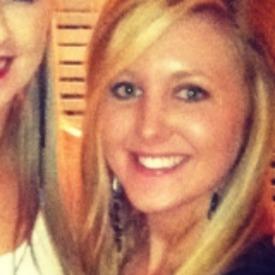Calories burned accuracy?

cuddlyrunner
Posts: 116 Member
I have noticed a big difference between what the fitness machines say I've burned compared to what MFP say. How accurate do you think the machines are? I've read that some of you rely on HRMs for accuracy-I don't know much about these.
0
Replies
-
machines are almost never accurate
 0
0 -
Really I always go off the machines cuz I enter my weight and age I figured weight has something to do with it too0
-
In order to get an accurate estimation of calories burned you need weight, age, height, gender and heart rate. MFP uses 5 of those criteria, but it has no clue about your heart rate and how hard your working, it's not as accurate but it can be pretty close.
Machines on the other hand, take little information about you and then use a pretty general formula based on what you put in to estimate calories burned.. and some can be up to 30% off!
HRM's(or heart rate monitors) are devices that you wear around your wrist and chest. Polar is a really popular brand around here.. either the FT4 or the FT7. Both let you enter all the data I mentioned above and give a pretty accurate calorie estimation. They can be found on amazon for 63(FT4) and either 70 or 80 for the FT7.0 -
Using the HRM is the most accurate way to track calories burned, but I'll be honest with you... MFP isn't too far off the target. In comparing the MFP with the actual result from the HRM it's usually within 50 calories. Never dead on, but fairly close. I'd still get the HRM.0
-
When at the gym, if you enter your weight and age it makes and estimate caloric burn per hour. It is based on an estimate age related basal metabolic rate (BMR) and the weight you enter. These estimates are sometimes great guidelines and they are usually accurate with about a 20-70 kCal give or take. Remember, the best measure is your own body! Take notice of how easy or hard the exercise is and change settings such as resistance and duration accordingly.0
This discussion has been closed.
Categories
- All Categories
- 1.4M Health, Wellness and Goals
- 398.2K Introduce Yourself
- 44.7K Getting Started
- 261K Health and Weight Loss
- 176.4K Food and Nutrition
- 47.7K Recipes
- 233K Fitness and Exercise
- 462 Sleep, Mindfulness and Overall Wellness
- 6.5K Goal: Maintaining Weight
- 8.7K Goal: Gaining Weight and Body Building
- 153.5K Motivation and Support
- 8.4K Challenges
- 1.4K Debate Club
- 96.5K Chit-Chat
- 2.6K Fun and Games
- 4.8K MyFitnessPal Information
- 12 News and Announcements
- 21 MyFitnessPal Academy
- 1.6K Feature Suggestions and Ideas
- 3.2K MyFitnessPal Tech Support Questions




